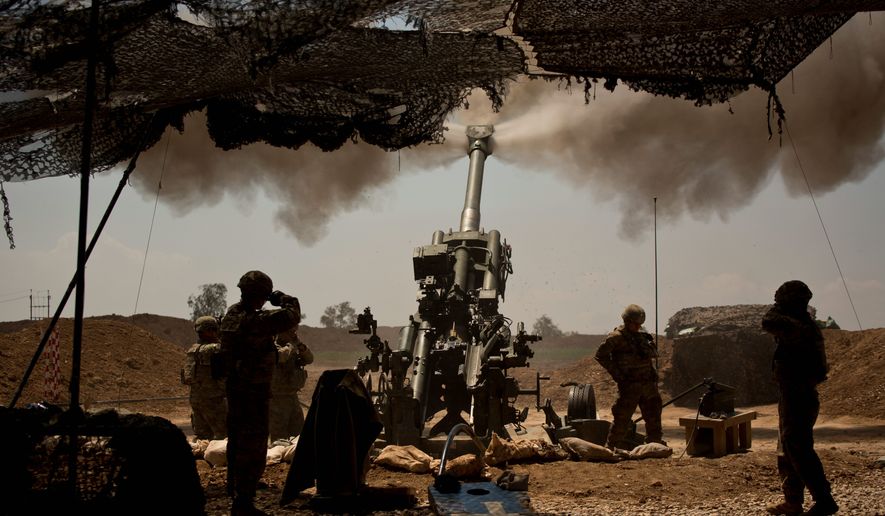Islamic State fighters launched a chemical attack against advancing Iraqi security forces in the besieged city of Mosul, injuring a number of local troops amid heavy fighting, the senior U.S. ground commander confirmed Wednesday.
The attack, which took place this week in the liberated western portion of the city, ended with several members of the targeted Iraqi unit exposed to a low-grade chemical agent, similar to the material used in earlier chemical strikes against coalition forces, Army Maj. Gen. Joseph Martin said.
Iraqi and coalition forces pushed the Islamic State terror group, or ISIS or ISIL, from the city’s west side in January.
Coalition forces are still conducting tests on the mortar rounds laced with the chemical agent fired at Iraqi forces, to determine what specific agent was used in the attack, Gen. Martin said during a teleconference from Baghdad. “We don’t know what we will find” after the tests, he said, but he was fairly confident the material was a mustard gas-type weapon used in by ISIS.
Gen. Martin declined to comment whether American and Australian military advisers who were attached to the Iraqi unit had been injured during the attack.
“We have not confirmed exposure at this time,” he told reporters at the Pentagon.
Gen. Martin also declined to confirm whether American, allied and Iraqi forces in eastern Mosul were taking additional precautions to defend against future chemical attacks.
“They have got the equipment they need, they have got the motivation they need” to drive ISIS from the east side of their main stronghold in northern Iraq, he said.
ISIS has launched 52 chemical strikes against coalition forces in Iraq and Syria, the London-based IHS conflict monitor said in a report published late last year. Of those 52 attacks, 19 were carried out in and around Mosul, according to the report.
U.S. officials initially reported a mortar strike in September near U.S. positions in the vicinity of a military airfield in the western part of al Qayyara, about 40 miles south of Mosul, had shown evidence of a chemical agent akin to mustard gas. However, subsequent tests for mustard gas agents by coalition officials proved inconclusive.
• Carlo Muñoz can be reached at cmunoz@washingtontimes.com.




Please read our comment policy before commenting.